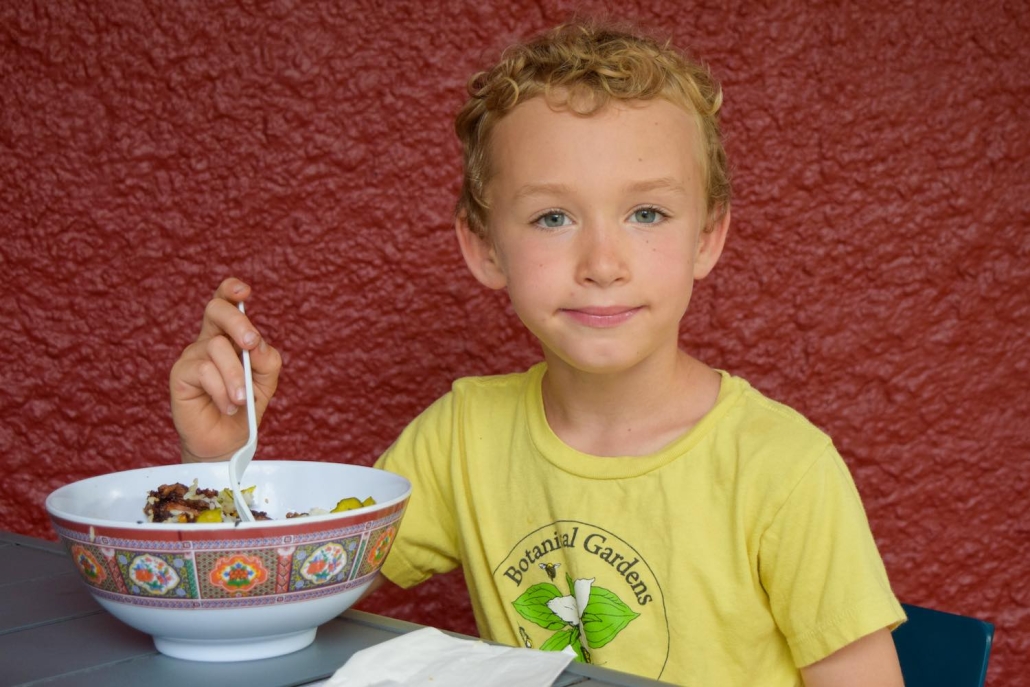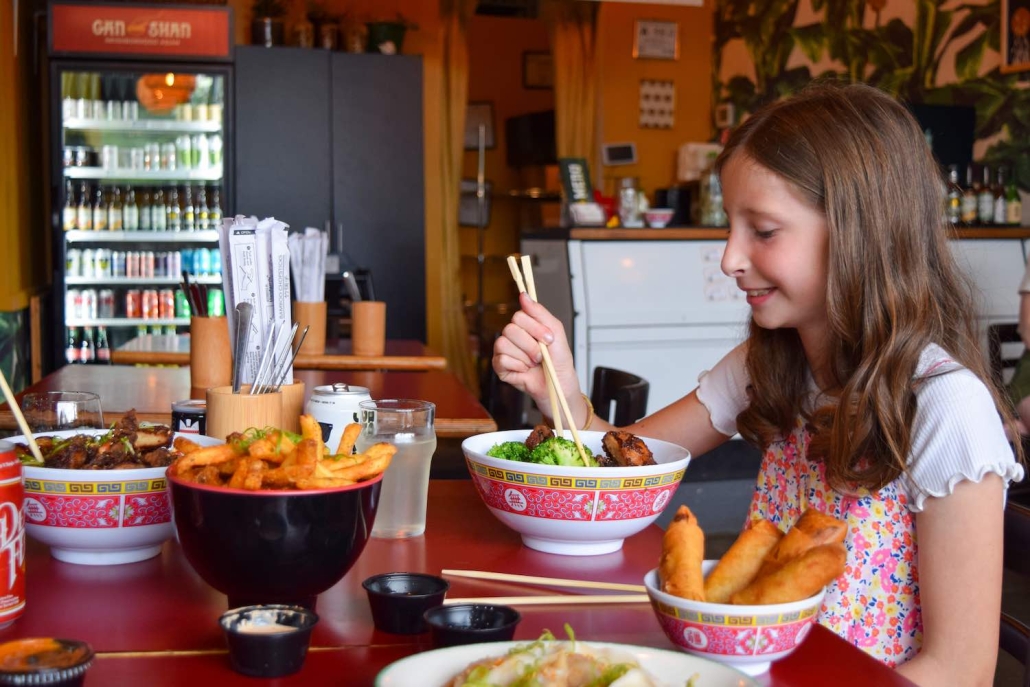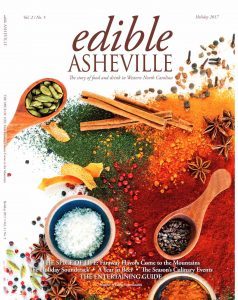YOUNG DINERS TASTE THE WORLD
Asheville restaurants offer kids a pleasing portal to other places
WORDS BY AMY BESS COOK
***
An often overlooked resource for teaching cultural diversity are local restaurants. With a stunning catalog of menus offering cuisines from around the world, the restaurants of Western North Carolina present an easy and affordable way to expose children to the world and its inhabitants. There’s pho from Vietnam, dosas from India and savory seafood dishes from the Caribbean. Any trip to these eateries can include lessons in geography, language, and music, in addition to the differences in food.
Those who are looking will always find such learning opportunities around the corner. Transplants to Asheville, for example, often find novelty in Southern Appalachian fare like ramps or chow-chow. Natives to this area, meanwhile, may find that it’s the influx of cuisine from other regions that excite the palate. And if unfamiliar food is intimidating, which it can be, perhaps use it as an opportunity to take just a “tasting bite” or two and focus more on the experience.
“When I was growing up, one thing that broadened my horizons was to cook foods from other places,” says Ray Hui, head chef of Gan Shan West, a popular Chinese-American restaurant in West Asheville. “It was always like traveling to another country.”

A young visitor to Gan Shan West.
After making your lunch or dinner reservations, Hui suggests families visit the local specialty markets where they can take a look at ingredients and prepared foods from other cultures. The packages will often be written in native scripts, presenting the chance to talk about language, and the smells will delight and intrigue little ones.
“Point out all the different foods that initially seem strange,” says Hui, who is a new father himself, “and talk about them.”
At Baba Nahm, a popular destination for Middle Eastern street food like shawarma and falafel, co-owner Brian Smith said children are encouraged to move beyond their culinary comfort zone, which is why he ditched the standard restaurant “kids menu” and familiar go-to items like chicken tenders, french fries and mac n’ cheese.
“We purposely do not offer a kids’ menu,” Smith says. “Children are encouraged to eat and try the food as-is. Almost every kid, albeit with some initial coercion, loves our falafel!”
Smith is also a board member for LEAF Global, an Asheville-based nonprofit promoting diversity and cultural understanding. “Food is an integral part of that understanding,” he says. “The more of an experience the meal is, the more likely a child is to embrace it.”
When visiting local restaurants, look for unique decor that highlights cultural customs or paintings that showcase street scenes or landscapes; listen for traditional music being piped through the speakers, perhaps using instruments that sound unfamiliar to some kids.

Restaurants offer an easy way for parents to introduce their children to different cultures.
At Dilbar in downtown Asheville, a bustling mecca for Indian street food, check out the TVs mounted throughout the restaurant that show Bollywood movies and their signature soundtracks, or a large screen stationed above the checkout counter that shows a captivating montage of Indian street food vendors working with a dance-like speed to create the country’s most beloved dishes.
“Kids see a real street vendor making a chai or dosas,” says Dilbar owner Al Singh. “This is a good way for them to learn that there’s more variety in the world than cheeseburgers.”
Importantly, says Hui, cuisine exists not only to push boundaries, but to offer comfort. Emphasizing the value of moving slowly to acclimate young palates, he aims for kids to enjoy the process. After all, we are shaped by what we eat.
“Food,” he says, “ sticks with you for the rest of your life.”
CELEBRATE DIWALI AT DILBAR
Diwali is one of the most widely celebrated holidays in India. Known as the “Festival of Lights,” this Hindu holiday commemorates the victory of light over darkness, good over evil and knowledge over ignorance—and is typically celebrated with the lighting of candles, lights, firecrackers or diya (clay lamps).
In 2024, Diwali will be celebrated on November 1. While traditions vary around the world, participants often mark the celebration by enjoying sweet treats and desserts.
At Dilbar in downtown Asheville, a destination for Indian street food, you’ll find a variety of popular Indian goodies to help you mark the occassion. There’s gulab jamun, a delicious confectionary made with milk solids, sugar, rose water and cardamom powder, as well as rasmalai, a paneer soaked in simple syrup and served with sweetened milk. And for lovers of funnel cake, check out jalebi, a fried dough dipped in a sugar syrup.
MORE THAN A MEAL
How to use a trip to a local restaurant to learn about other cultures!
- Before visiting a restaurant, encourage children to learn to say “please” and “thank you” in the native language
- While waiting for food to be served, pull up a map and identify the location of the restaurant’s origin country or region and highlight capitals and major cities
- In restaurants with unique decor, encourage children to pick one item they like—whether it’s a painting or sculpture—and ask them to describe what they like about it
- When eating, ask children to pick three words to describe the food (ie, spicy or sweet, lemony or salty). If possible, order one item from the menu that is new to everyone at the table and share it.
Save
Save
Save
Save
Save
Save
Save
Save
Save
Save
THE WEEKLY REVEL
Sign up for your free handpicked guide to enjoying life around Asheville.
Available weekly from May to October.





